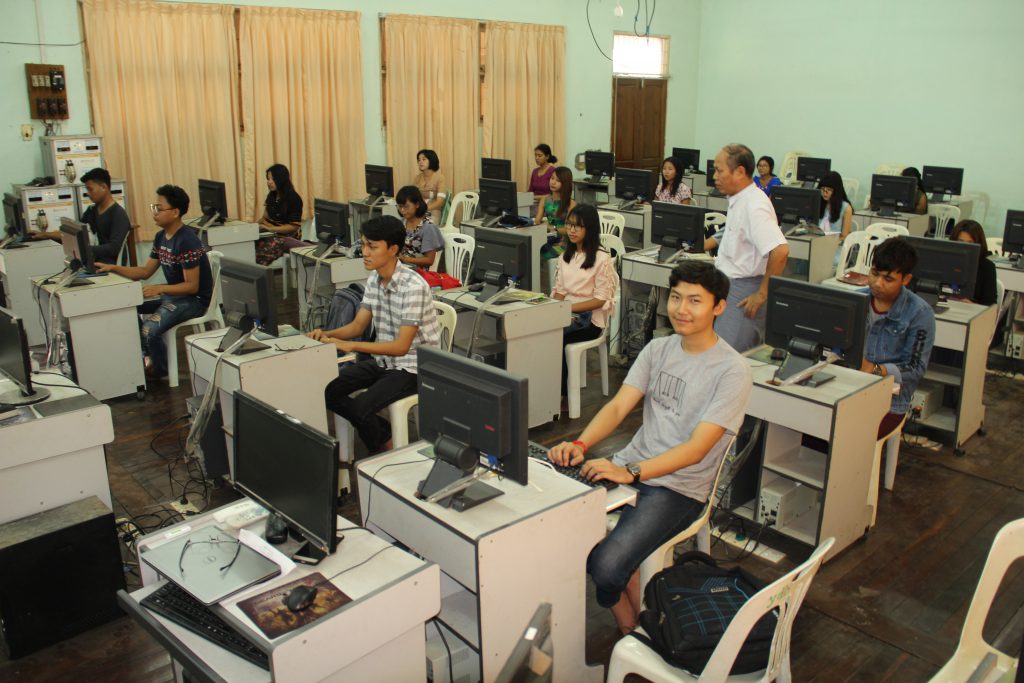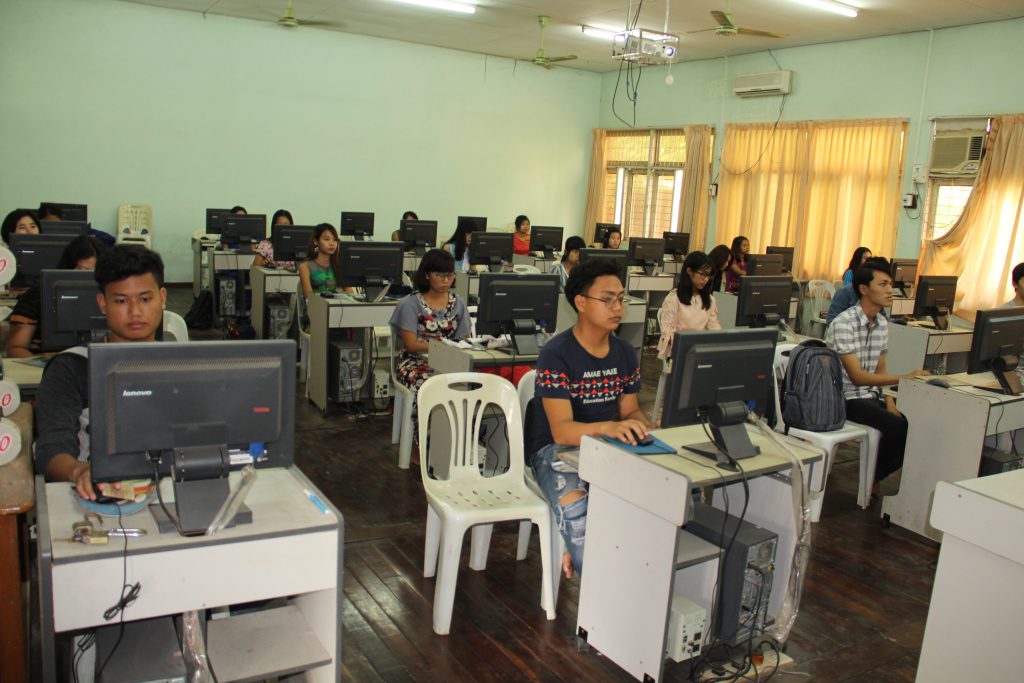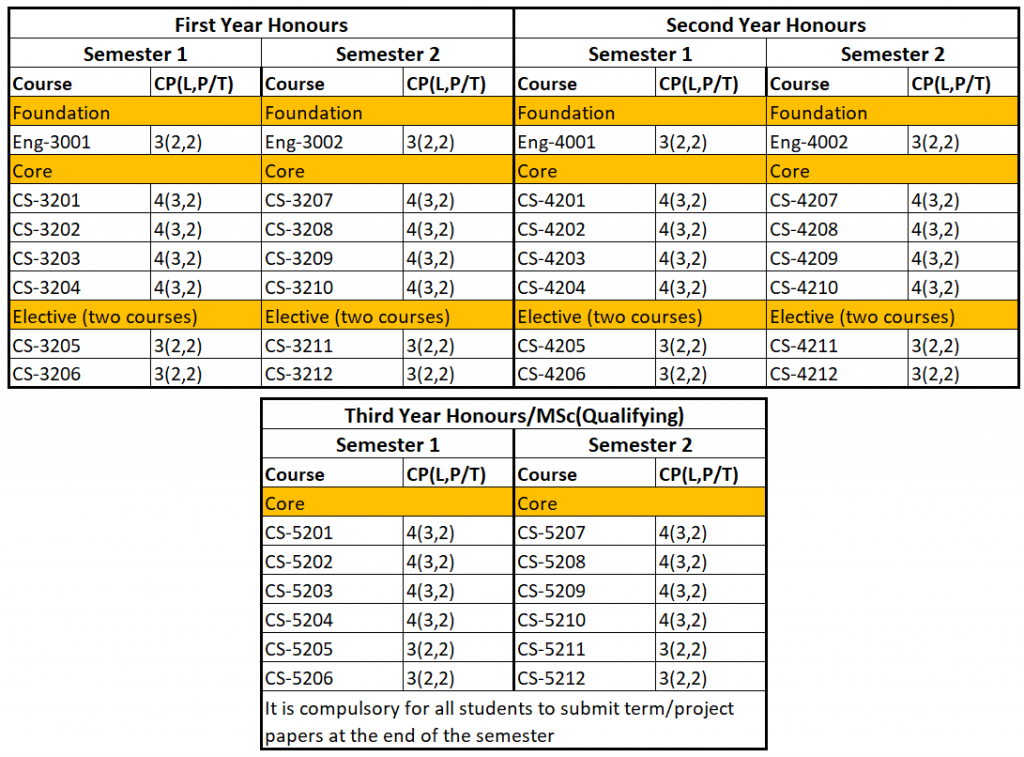Categories
Science Department of Computer Studies
Department of Computer Studies
 |
Dr May Myint Thwe Head of Department-Computer Science Professor Ph.D (Computer Science) Department of Computer Studies, Yadanabon University, Mandalay, Myanmar (+95-09) dawmaythwe@gmail.com |
|
– |
Staff
| Professor | – | 3 |
| Associate Professor | – | 2 |
| Lecture | – | – |
| Assistant Lecturer | – | – |
| Demonstrator | – | – |
| Total | – | 5 |
History of the Department
The origin of the Department of Computer Studies in the Yadanabon University started in the academic year 2004-2005. Rector U win Maung and Pro-rector U Than Nwe were behind the establishment of the Department. The department of Computer Studies offers BSc and BSc (Hons) the programmes in Computer Science.
Vision
- To produce human resources with a high level of competence in IT engineering, who are able to carry out the tasks of developing social, political, economic and educational sectors of the nation
Mission
- To open training courses on Computer Science Diploma Courses under CHRD
- To conduct more research on Software Engineering and Data Science
Programs Offered
| BSc / BSc (Hons) in Computer Science |
Curriculum
BSc in Computer Science
BSc (Honours) in Computer Science
Students who passed second year with GPA greater than 4 are eligible to attend BSc. (Honours) classes for three more years. After finished successfully, they are earned BSc. (Hons) degree majoring in Computer Science.
Descriptions Modules Offered
This module will provide the vocabulary of concepts that is needed to understand in mathematical terms the problems that computer systems are designed to solve, and to analyze proposed solutions for their correctness and efficiency. Specifications of computer systems can be expressed formally in terms of sets, relations and functions, and the correctness of programs that implement these specifications is often proved using the techniques of mathematical logic, including reasoning based on mathematical induction. This reasoning may involve the mathematical properties of permutations, orderings, and other similar concepts. Finally, analysis of the efficiency of programs may involve solution of recurrence relations, combinatorial calculations, and the use of asymptotic approximations. All these ideas will be introduced in this course. Computational mathematics involves mathematical research in areas of science where computing plays a central and essential role, emphasizing algorithms, numerical methods.
The purpose of these modules is to introduce students with information security, database security, computer security, malware security, viruses, authentication, authorization and encryption. The student can learn the fact that security is becoming a key priority because communication and information have become a key factor in economic societal development.
In this module, students can learn creating object databases, distributive databases, xml query network as database systems, peer-peer data sharing architectures, data grids, logic foundations, semantic databases, spatial and temporal databases, and knowledge bases.
The study of artificial intelligence (AI) is closely related to the field of artificial life (AL), and both are involved in synthesizing goal-orientated processes such as problem-solving, decision-making, environmental adaptation, learning and communication using computers and algorithms. While the field of artificial life examines systems and studies the complex behaviors that emerge from these systems, artificial intelligence uses systems to develop specific behaviors in machines and software. AI is a cross-disciplinary topic drawing on applied mathematics, symbolic logic, semiotics, electrical engineering, philosophy (of mind), neurophysiology and social intelligence. AI involves the automation of tasks (such as evaluative and predictive tasks) in computer applications involving complex real-world data successful use of AI in this manner can act as a viable substitute for humans doing the same tasks.
Teaching Aids & Labs
| Computer Training Centre 1 with 30 Seats, Computer Training Centre 3 with 30 Seats, Computer Training Centre 4 with 30 Seats, Computer Training Centre 5 with 30 Seats |
| Sample Hardware Components |
 |
 |
 |
 |
Books
- Software Engineering 5th edition, 6th edition, and 7th edition
- Software Engineering A Practitioner’s Approach 6th edition
- Risk Management
- Management Information Systems
- Certified Security Administrator for solaris:9&10 Study Guide
- An introduction to Database Systems
- Textbook for Fundamental Information Technology Engineers (No.1, 2, 3, 4, 5)
- Software Project Management
- Artificial Intelligence
- E-commerce
- Discrete Mathematics





